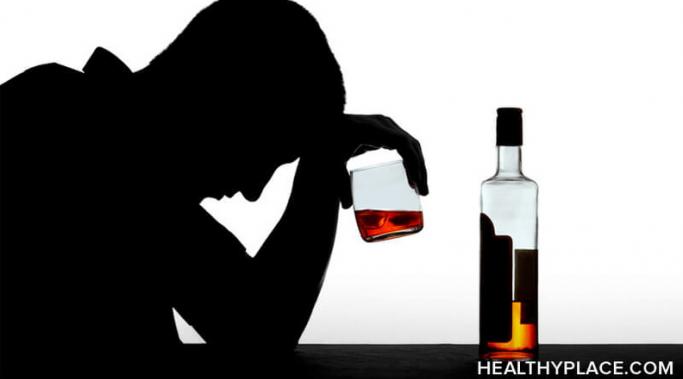Blogs
Listening to music really helps with my schizoaffective disorder. I try to listen to soothing music, like Tori Amos' more recent work or pretty much anything by Hope Sandoval. A lot of people have suggested I listen to "happy" music. The trouble is, I don't like a lot of happy music because it tends to be in the pop genre, although there are exceptions. Here's how music helps with my schizoaffective disorder.
Social anxiety can feel torturous, and to deal with it, many people use safety behaviors. Safety behaviors are specific things someone does, usually knowingly but sometimes subconsciously, to cope with anxiety. Safety behaviors can be a part of many disorders; however, they're most commonly associated with social anxiety disorder. The issue, when it comes to social anxiety and safety behaviors, is whether these behaviors are helpful or harmful.
It's appropriate to focus on the importance of routine self-care in our depression recovery since International Self-Care Day was this past Tuesday, July 24. This kind of self-care includes daily tasks that are important for our health and hygiene, but we often find these seemingly basic activities overwhelming with depression. What are some of these routine tasks? Why are they an integral part of coping with depression and how can we find the motivation to complete these routine self-care tasks?
The fear of weight restoration is one of the most frightening and challenging mental blocks to conquer in eating disorder (ED) recovery. When you are malnourished from starvation or binging and purging, the first step toward physical healing is to stabilize your weight in a healthier range. This can also be the scariest part of the whole eating disorder recovery process because gaining weight means surrendering that intense and desperate need for control. It means rejecting the illusion that being the "skinniest person in a room" equals success, worth or beauty. It means being forced to accept that you're more than a body, and you are lovable no matter what the scale reads. Without the buffer of weight manipulation to cower behind, you feel exposed in a way that is often uncomfortable and unfamiliar. But shedding this layer of defense is not just a life-saver—it's a turning point to freedom. Here are some practical interventions for conquering the fear of weight restoration in ED recovery.
Alcohol and low self-esteem connect intimately with one another because when you have low self-esteem, you may try to find ways in order to mask the problem. There are many things that can give you a temporary boost in confidence, including material possessions, status, money, sex, a new relationship, travel, drugs, and alcohol. However, these really only offer you a temporary and superficial form of positive self-regard. None of them can help you address the cause of your low self-esteem. Since drinking is so prevalent and ingrained in people’s lives, I'd like to address alcohol and low self-esteem today. Of course, not everyone drinks regularly because of low self-esteem issues. But if your image of yourself sober is starkly negative, whereas you only feel confident when drunk, then this may be a counter-productive habit.
Do we owe our self-harm stories to anyone? I ask because if you are a person who suffers or has suffered from mental health issues of any kind, mental health awareness is a tricky landscape to navigate, especially nowadays. Now, possibly to a greater extent than ever, there are conversations taking place on a national level about mental health research, the benefits and pitfalls of psychiatric medication, whether there exists a link between unchecked mental health problems and violence, the relationship between the rise in ailing mental health and the rise of unfettered capitalism, and so on. With these mental health topics at the forefront, people become aware of self-harm, too. But do we owe the telling of our self-harm stories to anyone for any reason?
Knowing how to make moving less stressful can make the difference between a touch of anxiety and an overwhelming amount of anxiety. Moving is a logistical nightmare. Finding a new place, getting all your stuff packed, hauling it out to your moving van –- it’s enough to drive any person to the brink of insanity. But for those of us with anxiety, it can be a seemingly impossible task.
I want to share five things I do when I want to get out of a funk. By funk I don’t mean serious depression; I mean a really bad day, recent setback, or maybe even the monotonous routine of everyday life. It’s important to take care of yourself and feel good, especially in mental illness recovery. Here are simple things I do to cheer up and feel refreshed when I need to get out of a funk.
People with attention-deficit/hyperactivity disorder (ADHD) tend to struggle with transitions from one situation to another or one activity to another. Whether you have ADHD or not, even good change creates stress. Change is the definition of moving out of one’s comfort zone and it takes a lot of energy to react to the unknown. For people with ADHD, that discomfort is magnified. ADHD makes transitions much more challenging for people.










I believe she will only be able to rid herself of her demons, and hopefully her BPD as well, when she's ready to confront the abuse of her father. If she can put the blame where it belongs, she may stop projecting that victim/perpetrator cycle on the present men in her life. These demons are a metaphor for the purgatory she has created for herself. That reality has consequences in the real world, but it need not be real in the tangible sense. Exorcising her demons will require the expenditure of real physical energy and probably the destruction of aspects of her personality. If this ever happens, and it's possible but not probable, then these demons will evaporate. They are only as real as one's personality is real. In short, reality is not the question, it's what you make of the things you feel to be real.